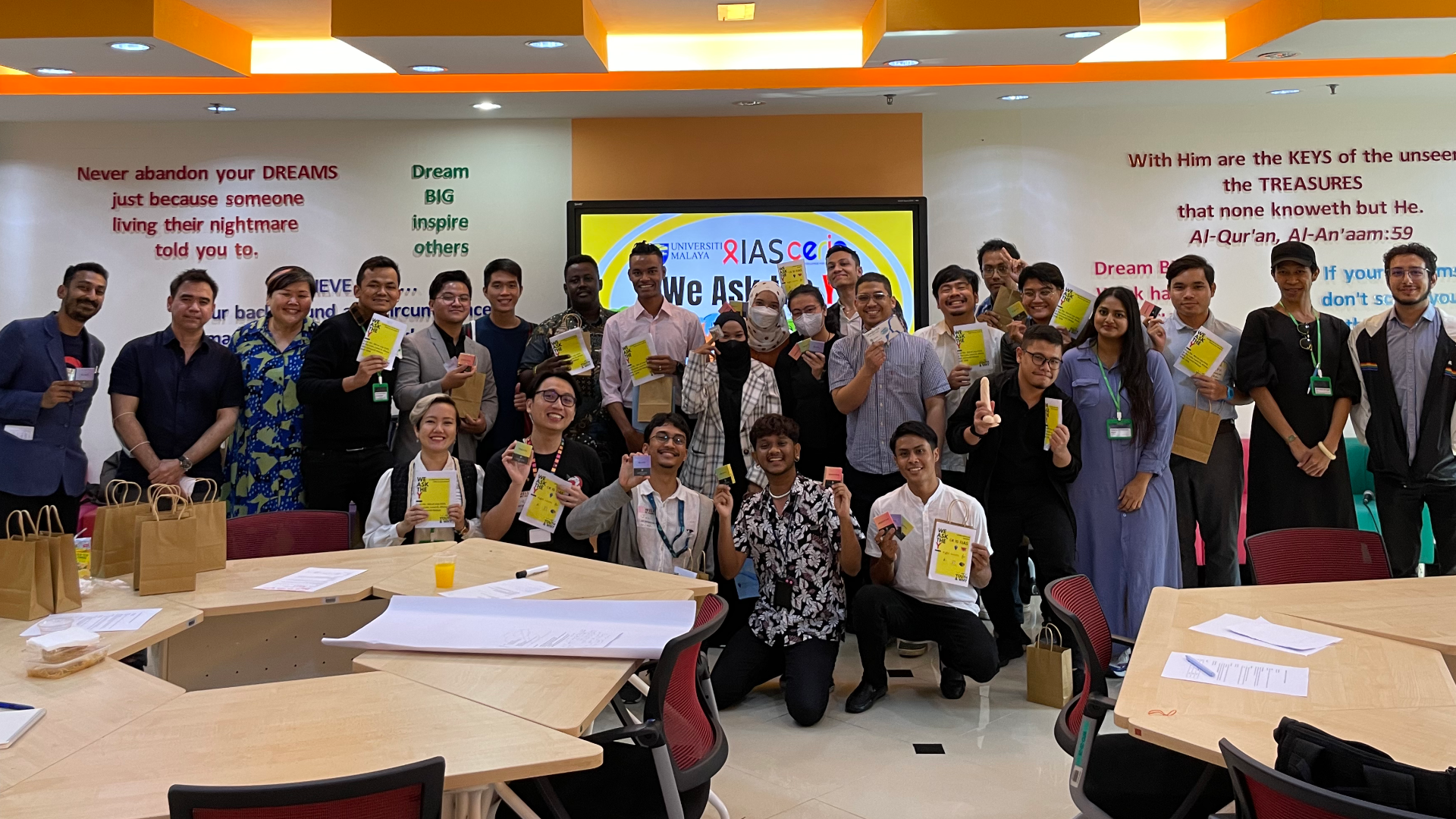Projects
We Ask The Y Training
The project proposes to train, coach, and challenge young people, especially young key populations in Malaysia, ages 18-30 into becoming critical thinkers using participatory approaches and design thinking to develop capacity, tackle root causes, and encourage collaborative cultures in response to the HIV epidemic among young people. The project trained 30 participants from members of key populations including young men who has sex with men, young people who inject drugs, and refugees.


By training young people, especially young key populations on sexual and reproductive health alongside free HIV/STI testing, their HIV-related knowledge will improve and will engage more in HIV testing and prevention because young people are given an opportunity to take ownership over their sexual and reproductive health. The training would include modules on sexual and reproductive health, SOGIESC, substance use, addiction and solving stigma

By further training young people on how to tackle health inequities and providing them opportunities to pitch their ideas on HIV-related projects, the project aims to increase the potential of HIV projects for young people that are tailored to the local context. This is achieved by ensuring programs for young people are informed by the lived experiences of young people, especially young key populations. Providing monetary support wherever such investment is assessed to be most needed, will also further incentivize young people to take charge in the HIV response.

The training has demonstrated improvement in HIV and sexual health knowledge, engagement in HIV/STI testing and high demand for PrEP. Apart from that, we were able to garner five projects that have the potential to be implemented in the future. We incentivized one project that demonstrated the highest potential and impact.
Changemaker training with ERASE
Eradicate AIDS and Stigma for Equality (ERASE) is a medical student-led initiative that is based in Universiti Malaya. The 5-week training aimed to coach, and challenge the leadership members of ERASE in developing capacity, tackling root causes, encouraging collaborative culture and producing high-impact project designers based on implementation science in the HIV response for young people. The training also supported the leadership team in their grant application and project management by providing recommendations to kick start their innovation and for improvements.
Street Interviews


In order to bust misconceptions about HIV, it is imperative to identify the common myths and perceptions from young people. Harping onto the trend of street interviews on Tik Tok and Instagram, this initiative took it out in the street by asking young people about HIV and how the HIV response can work in favour of young people.






